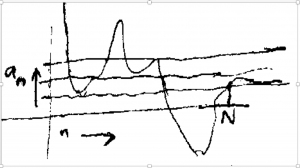August 7, 2018, 10:40 pm

Learning cognition applied to mathematics and the philosophical dilemma of representation have major implications for students. German researcher Thorsten Scheiner discussed approaches in math learning cognition during his talk ‘Contextualizing, complementing, complexifying in mathematical cognition’, a collaboration with Rio researcher Marcia Pinto (UERJ) at ICM today.
Scheiner analysed the applications of epistemological challenges in math using Frege’s 1892 theories and Duval’s cognitive paradox. The representation problem can be summarized in the cognitive paradox: ”How can we distinguish the represented object from the representation used if we cannot get access to the mathematical object apart from the representation?” (Duval, 2006)
Read more:
Student disconnect from mathematical concepts can occur unintentionally depending on how math is represented in education, problems which Scheiner said must be contextualised, complimented, and complexified. In his focus area of complementing, he finds that through the coordination of diverse thoughts (sensesF) to form a unity, one may find a positive stance that cooperates rather than conflicts. In the schematic, he demonstrates an example of cooperation of dissimilarity.?

Through the concepts of contextualizing, complementing and complexifying, it is found that new dynamics and structure in mathematical understanding may emerge. Thinking about math is frequently presented as complex and regimented. But, dedication to thinking mathematically presents new opportunities for intellectual development.